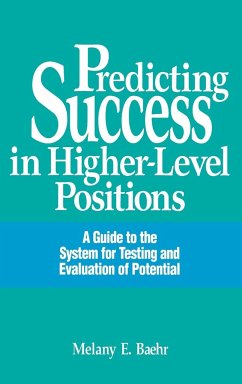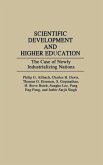STEP is a job analysis-based human resource management system that was specifically developed, over more than two decades of research at the Human Resources Center of The University of Chicago, for higher-level positions in business and industrial organizations. Currently in use by major American corporations, the system is time -and cost-effective since it provides a common base for the coordination of a wide variety of human resource procedures including selection, placement, the identification of training needs, promotion, and succession planning. The system is unique in that it provides, after a single administration, estimates of potential for successful performance and assessments of the level of acquired skill in the functions to be performed, not only in the present (target) position but for all vertically and horizontally linked positions in a job classification matrix that covers the vast majority of higher-level personnel. The first chapter of the book positions the STEP system with respect to current thinking in industrial-organizational psychology, briefly describes the rationale for the two interlocking measurement subsystems on which it is based, provides an empirical definition of potential, and identifies the higher-level population to which it can be applied. Chapter 2 and 3 give a review of job analysis procedures, describe the development of a job analysis instrument for the system, and discuss its applications for human resource management. Chapters 4 and 5 follow the same pattern of review, development, and application for a managerial and professional test battery. Chapter 6 thoroughly explores the system's reliability and validity. Chapter 7 provides very practical instructions for a wide array of human resource applications, and Chapter 8 is devoted to one of its applications, the career counseling conference. The final chapter describes how the STEP program will help human resource professionals face the challenges of the coming decades successfully. The book should be of interest to both teaching faculty and knowledgeable practitioners in industrial-organizational psychology.
Hinweis: Dieser Artikel kann nur an eine deutsche Lieferadresse ausgeliefert werden.
Hinweis: Dieser Artikel kann nur an eine deutsche Lieferadresse ausgeliefert werden.








